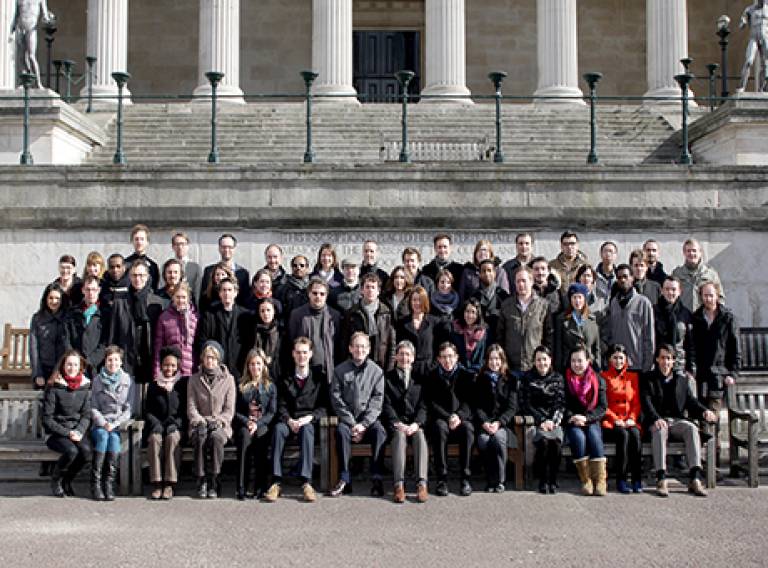UCL Energy Institute continues to grow in 2014
18 December 2014

The UCL Energy Institute (UCL-Energy) continued to grow its international reputation in 2014 with further successes in teaching, research and its partnerships.
UCL-Energy’s achievements in 2014 build on its strong performance over the past three years, which have contributed to The Bartlett Faculty and UCL’s successful results in the REF2014, announced today.
Highlights from 2014 include:
Teaching
The most exciting news of the last year has been the renewal of funding for the LoLo CDT hosted by UCL-Energy and Loughborough University. LoLo is now funded to produce a further 50 doctoral graduates, part funded by industry, by 2022.
The hugely successful MSc in the Economics and Policy of Energy and the Environment (EPEE) is now in its second academic year. A joint venture with the Institute for Sustainable Resources, this course had over 50 registered students in year one, and around 80 students this year. It is now among UCL’s most successful recently introduced Masters courses.
Research
- Our Energy Systems group, led by Prof Neil Strachan, has consolidated its position as UK’s leading energy systems modelling group. Building on its leading role in the wholeSEM collaboration, the UCL team is to develop an open source version of UK TIMES with the Department of Energy and Climate Change. UKTM is a state-of-the-art energy systems optimisation model that analyses trade-offs between resources, infrastructures, technologies, policies and demand changes in meeting long term policy goals including decarbonisation targets and energy security. This project will deliver a fully transparent and open-source energy systems model which will be the default model for policy analysis in DECC. This open-source model will be available in early 2015 and will be managed by an expert user group from leading UK institutions.
- DDPP involving colleagues in both the Energy Systems Group and the UCL Institute for Sustainable Resources. It is an international collaborative initiative to explore deep decarbonisation pathways capable of restricting global temperature rise to less than 2°C over the rest of the 21st Century. An interim report was submitted to the UN Secretary-General and the United Nations Climate Summit in September 2014. The final DDPP report to the French Government will feed into COP 21 in Paris in November 2015
- The Energy, Space and Time team, led by Dr Mark Barrett, completed a TSB funded city model feasibility study (£100k) in July of this year. The study first surveyed the support that cities need to support energy and environment planning. The team then produced a plan to develop city databases and a user-friendly model for use by city stakeholders (consumers, government, suppliers, etc.) in a designed and facilitated process to produce implementation plans. TSB then funded a £1 million project (2015-2017) to develop the model and planning process in conjunction with selected cities. UCL will develop its ‘academic’ model for commercialisation. This will be based on the group’s existing electricity models extended to other vectors, most notably district heating and hydrogen, and to other dimensions including fuel poverty and air pollution – concerns expressed by stakeholders.
- Longitudinal UK Energy Survey (LUKES): UCL staff, led by David Shipworth, have been working with NatCen and DECC to undertake a feasibility study for a longitudinal study of energy use in UK dwellings which recommends £28M funding for 5 years of survey. Phase 2 of the development is currently being bid for and a Working with End Use Energy Demand Centres bid has been successful. The latter will help develop monitoring strategies to support LUKES. If established, LUKES will provide a major addition to the tools available to support Energy Epidemiology in the UK.
- Cisco Future Cities Project: Internet of Things project on ‘Light as a Service’. Significant new finding on the impact of light on thermal comfort in laboratories now being tested. A major extension of this work is being planned with Imperial and Cambridge computer science. UCL staff include Gesche Huebner, Stephanie Gauthier, Wing-San Chan and David Shipworth.
 Close
Close

